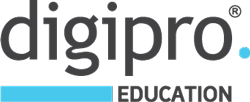Designing eLearning, Microlearning & Nano-Learning Instructional Corporate Solutions

Instructors
-
 Chryso ChristodoulouCEO - Founder
Chryso ChristodoulouCEO - FounderMrs. Chryso Christodoulou is the founder of FUNecole® Research Institute and the co-founder of Digipro Education Limited. Her academic background is in Computer Science and Education. She is the designer and author of the FUNecole® for Cambridge ICT Starters Initial Steps endorsed by University of Cambridge International Examinations and recognized best practice educational approach by the European Commission. Mrs. Christodoulou is an external educational expert for the Institute of Prospective Technological Studies (IPTS) on various educational research projects. She is a program committee member for the Institute of Electrical and Electronics Engineers’ (IEEE) Computer society. Mrs. Christodoulou participates as keynote speaker and panelist at numerous conferences, seminars and workshops around the world. Mrs. Christodoulou´s work has been published in scholarly and policy publications, such as IEEE Xplore and the European Parliament Magazine. She is a recognized as an entrepreneurship expert by OECD and is one of 350 European Ambassadors of Entrepreneurship.
-
 Kyriakos ChristodoulouHead of R&D and Innovation
Kyriakos ChristodoulouHead of R&D and InnovationKyriakos Christodoulou is the Research and Development Innovation Director at Digipro Education Limited, a leading provider of innovative pedagogical solutions in the EdTech industry. He has over 15 years of experience in the field of computer science, specializing in ethical pedagogy, while also holding the position of Director of R&D and Innovation of a global computer science curriculum at FUNecole Education Limited.
He previously worked as a Computer Science Lecturer and Researcher at the University of Duy Tan. Under Kyriakos’ leadership as a Robotics instructor, his students received 1st prize in primary age ROBOTEX contest. Kyriakos holds a Bachelor’s in Computer Science from the University of Nottingham, and an MSc in Technology Innovation Management from SPRU, University of Sussex.
As a co-founder of a non-profit organisation the ‘ECO Social Movement’, he is committed to support and organise social and ecological volunteering projects. In his spare time Kyriakos enjoys playing the piano and rock-climbing excursions.
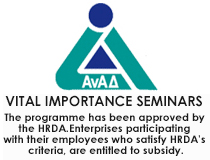
Date
24 & 25
2024
Time
Cost
Location
eLearning on the Rise!
eLearning trends were on the rise long before the global pandemic. When executed correctly, eLearning can not only be a more convenient option as it enables dispersed teams to connect and complete vital learning content. But it can also produce better learning results in terms of completion rates, and more importantly knowledge retention. In fact, Brandon Hall and Rosenberg (2001) found that eLearning can increase knowledge retention by up to 60% simply because it’s more engaging than traditional learning.
This valuable seminar will be useful for instructional designers, promotion, marketing and internal training managers of SME Managers and/or large enterprises. These managers are in charge of the company or specific sections (or departments) within the company (e.g. marketing, promotion, sales, operational processes and training). The seminar also addresses the needs of HR Managers, and other key decision makers involved in the development or the implementation of new business initiatives like new lines of products or services, the expansion of the company in new markets etc. Business managers, owners and training design professions with the strategy as well as the benefits of utilizing eLearning, Microlearning and Nano learning in training their employees or servicing the clients in Cyprus and abroad.
- • Identify eLearning as an i effective, time-saving, and results in higher business revenue.
• Recognize that like eLearning, microlearning and nano-Learning has been steadily increasing in popularity as workplaces continue to modernize and produce better training styles to experience consistently better learning results. - • Use top of the art corporate eLearning, microlearning and nano solutions.
• Use Content Authoring Tools and Online Assessment tools.
• Design Web2.0 and Mobile Learning solutions.
• Organize and design documents, storyboards and prototypes to support eLearning experiences.
• Advocate for knowledge, skills, and creativity related to eLearning instructional design.
• Choose interactive games, simulations, job aids, and graphics.
• Model and collaborate effectively with Subject Matter Experts (SMEs) in reference to eLearning applications per subjects.
Recent Program Participants



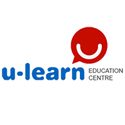



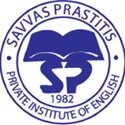
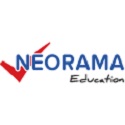
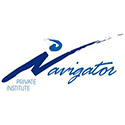


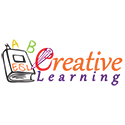












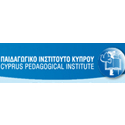

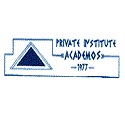

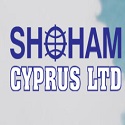
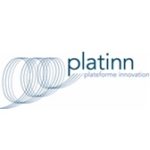

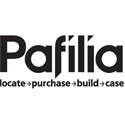

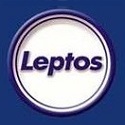
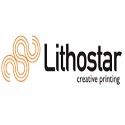
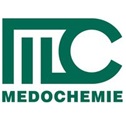

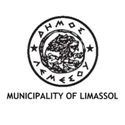

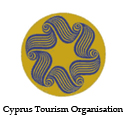


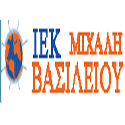
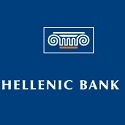


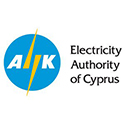

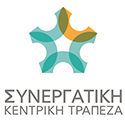

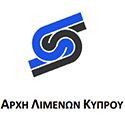

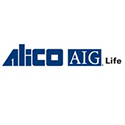
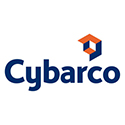
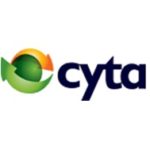


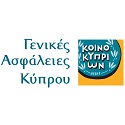

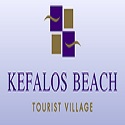



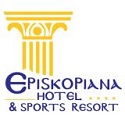





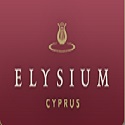
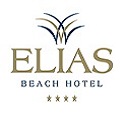


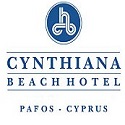

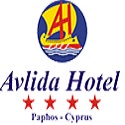




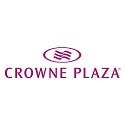





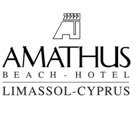


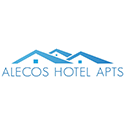






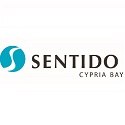






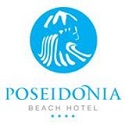
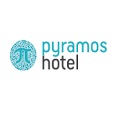

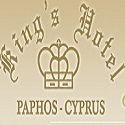
The event is finished.
Hourly Schedule
Day 1
- 07:30 - 9:30
- Support the Technical Infrastructure Necessary for Online Learning
- • Ensure that participants have equitable access to devices (including assistive and adaptive technologies) and connectivity conducive to online learning for an extended period of time. <br/>• Support the Curation and Delivery of Content that Promotes Active Learning. <br/>• Curate and deliver content that promotes active participant engagement. <br/>• Organize content such as prerecorded videos and readings so that students will be engaged to use. <br/>• Support participant capacity by building effective online learning experiences. <br/><br/> Learn how to: <br/>• Define the terms instructional design, eLearning, blended and hybrid learning. <br/>• Identify the difference between computerbased training and web-based training.
- 9:30 - 9:45
- Coffee Break
- 9:45 - 12:15
- Create a Blueprint of your eLearning Strategy
- Ensure to Include the Following Elements: <br/><br/>• Target Audience: Who is your typical learner? Where are the learners located? How many of them will take your course at a time? What device will they use to access your course <br/>• Learning Objectives: What do your learners need to know and do? <br/>• Company Goals: What do you want to change and achieve through eLearning? <br/>• Content: Where are you going to get content from? How are you going to collect content? <br/>• Team Members: Who will be the key stakeholders? Who will be the subject matter experts? Do you need designers and programmers who are experienced in mobile learning? <br/>• Marketing Plan: How will you spread the word about your new courses? What will be the hook or the USP? <br/>• Tools and Delivery Platforms: How will learning be delivered? How will the course be created? Does your development staff have the skills to use these tools? <br/>• Evaluation Parameters: How will you measure results?
- 12:15 - 13:00
- Lunch Break
- 13:00 - 14:00
- Microlearning
- • What is Microlearning and how is it delivered? <br/>• How Microlearning affects participant engagement and learning effectiveness? <br/>• How Microlearning provide participants with deeper understanding of the content at hand as well as apply the knowledge in practical and effective ways? <br/>• Why do participants favor microlearning above other learning methods? <br/>• The microlearning development costs are reduced by 50% but the speed of development is increased by 300% with the introduction of eLearning microlearning.
- 14:00 - 14:15
- Coffee Break
- 14:15 - 15:45
- Microlearning with EdApp
- • What is EdApp mobile-accessible learning platform? <br/>• How users to create courses from scratch or choose from an extensive library of ready-made content. <br/><br/>Case Study: OrderYOYO, is a tech company that empowers independent takeaway restaurants to grow their online ordering culture using EdApp Microlearning Application. Order YOYO recognises the high expectations around online ordering culture leads the way in supporting local takeaway restaurants to take back control of their business.
Day 2
- 07:30 - 09:30
- Differentiate between the four levels of interactivity and select the most appropriate level for the online lessons/course
- • Choose linear or non-linear navigation and layout for the eLearning lesson/course. <br/>• Select the appropriate type of game using appropriate gamification elements. <br/>• Design the learning game that helps learners understand and retain the content. <br/>• Select eLearning tool appropriate for the needs of the eLearning lesson/course. <br/>• Define the various types of videos that can be used in eLearning lessons/courses. <br/><br/>Case Study: <br/>• Manage eLearning courses using the IPECC Model and Project Management tools.
- 09:30 - 09:45
- Coffee Break
- 09:45 - 12:15
- Nano- Learning on the Rise!
- • What is Nano-Learning? <br/>• Nano- learning in the age of TikTok, SnapChat and YouTube proven effective? <br/>• How Nano-learning enables users to teach one skill within a much larger topic or theme in under 2 minutes or less? <br/>• The difference between micro-learning and nano-learning <br/>• Is it worth implementing Nano-learning? <br/><br/>Case study: <br/>Due to social media, digital devices and even television, we are bombarded with content on a regular basis, which is argued to cause an increase in stress and a decline in attention spans. Presentations of how the corporate sector are now using multimedia nano-learning within CPD sessions for their employees to combat screen fatigue and distractions such as notifications and alerts that we regularly encounter in a modern-day working environment.
- 12:15 - 13:00
- Lunch Break
- 13:00 - 15:00
- Incorporate social Networking tools in the eLearning, Microlearning or Nano-learning experiences
- • Use agile methods and techniques to design eLearning experiences <br/>• Identify situations when performance Improvement interventions are needed Developing Effective eLearning, Microlearning and Nono-learning Courses <br/>• Use The 10 visual design principles of good design. <br/>• The 9-Point Checklist for the Perfect eLearning Course Design <br/>• A 7-Step Typography Lesson for First-time eLearning Developers <br/>• The Complete Guide to Color Combinations in eLearning Group Project Preparing a group eLearning course with Adobe Captivate or with EdApp
- 15:00 - 15:15
- Coffee Break
- 15:15 - 15:45
- Present group projects that contain learning experiences beyond expectations driven by authentic passion and need
Terms and Conditions
The above seminar is fully subsidized by HRDA on the condition that the following criteria is stringently adhered to:
1. Cameras and microphones must be open for the duration of the seminar.
2. Participation for the whole seminar must exceed 75%.
3. 1 device per person must be used.
4. You must ensure you check in punctually at the beginning of the seminar and check out at the end of each day.
5. You are obligated to participate in the follow up onsite 4 Hour visit and you must ensure you check in and check out promptly.
In the event the criteria is not fulfilled satisfactorily and you are rejected by HRDA, please note that you as an individual or your company will be liable to pay the participation fee of €1800.
Finally, please see our cancellation policy:
– Cancellations can be accepted up to 5 working days prior to the seminar without penalties. For any cancellations received after the deadline (or no-shows), the individual or company will be invoiced the full amount per participant.
– Substitutions can be accepted up to 2 working days prior to the seminar without penalties.

